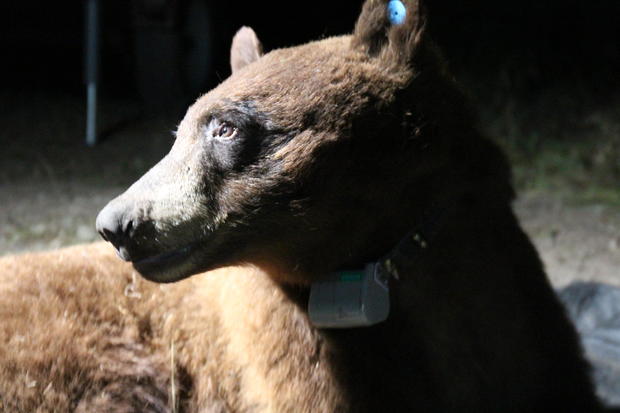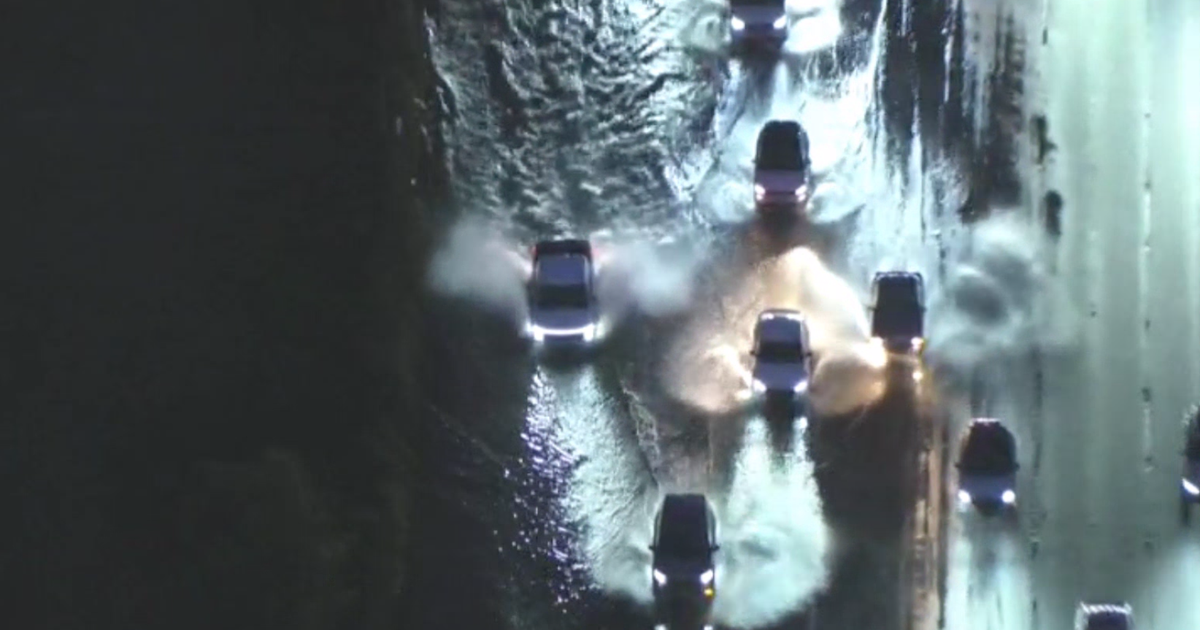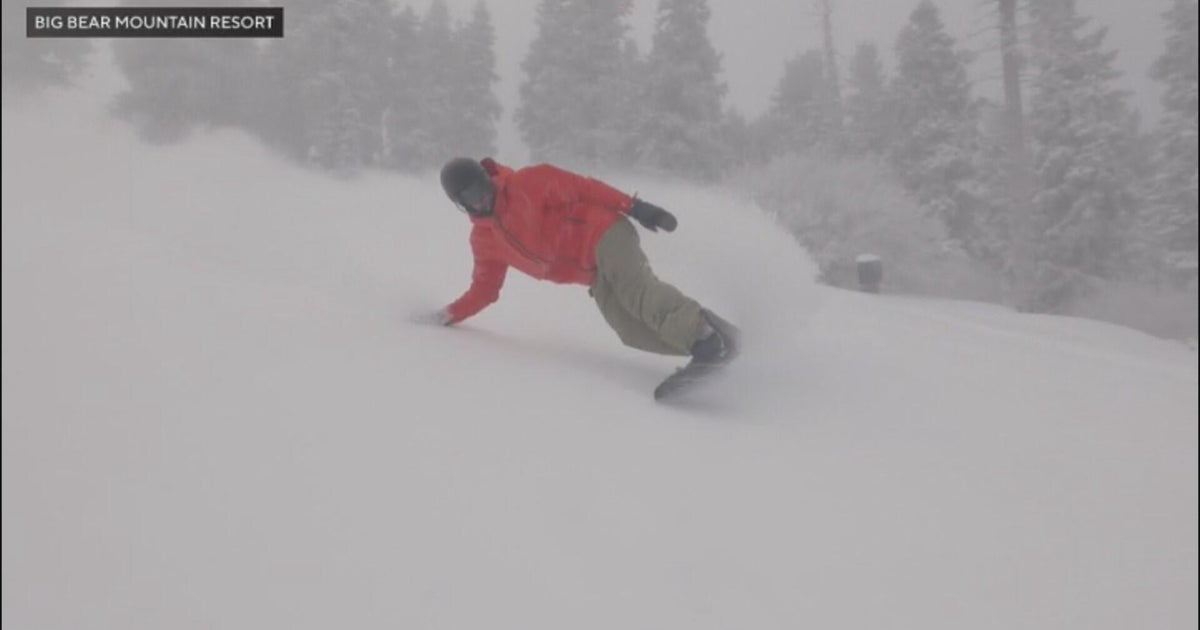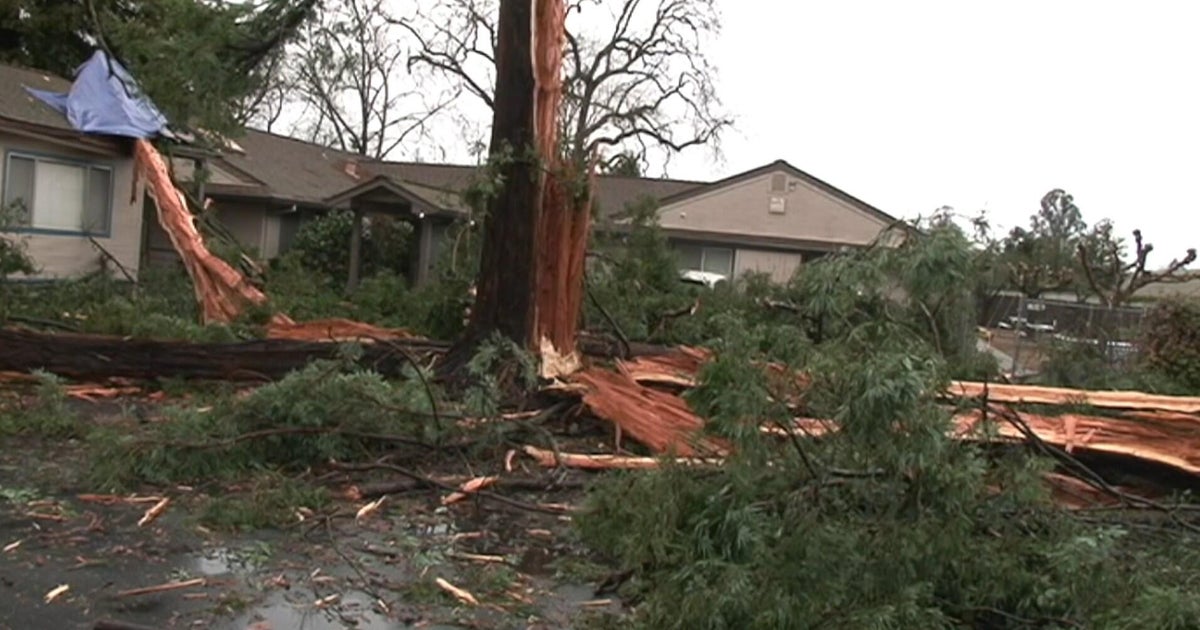Black bear captured and tagged in Santa Monica Mountains for the first time
Biologists recently captured and tagged a young black bear in the western part of the Santa Monica Mountains near Los Angeles, marking a first for researchers eager to understand how such a large predator coexists with others native to the area.
The bear, a male estimated to be 3 or 4 years old and weighing about 210 pounds, was captured and radio-collared by scientists at the National Park Service on April 23, in an undeveloped portion of the mountain range south of the 101 Freeway, the agency said. The animal has been named BB-12, and biologists who performed the tagging will now track its movements using the GPS radio collar fitted around its neck.
Although bear sightings in the Santa Monica Mountains are not unprecedented, the nearest known population of black bears is almost 50 miles away, in the Santa Susana Mountains northeast of there. And despite the occasional sightings in the Santa Monica Mountains and in Simi Hills, which is not as far, wildlife officials say there is no evidence to suggest a breeding population exists in either of those locations.
"He appears to be the only bear here in the Santa Monica Mountains, and he's likely been here for almost two years based on our remote camera data," said Jeff Sikich, the lead field biologist of a two-decade mountain lion study in the region, in a statement about BB-12.
"This seems to be our first resident bear in the 20 years we have conducted mountain lion research in the area," his statement continued. "It will be interesting to see how he shares the landscape with our other resident large carnivores."
Skitch noted that when the young bear reaches the age for mating, "it might attempt to move back north and cross the freeway again." With a GPS system to follow its movements, scientists will "hopefully know where it may attempt to cross the freeway" and in turn "better understand habitat connectivity for wildlife in the area," he added.
Whether the black bear tagged in April had been seen roaming the area before is unclear, although the National Park Service noted that a young black bear was spotted in Newbury Park in July 2021 and again several times on surveillance cameras in the Santa Monica Mountains after that. Biologists say that animal could be the bear now dubbed BB-12.
Bears are omnivores, meaning they will essentially eat whatever is available, including fruits, nuts, roots, insects, other animals — some as large as a deer — and carcasses. They will also eat human foot, when found unsecured in cars or at campsites, for example, as well as pet food and trash, the National Park Service said.




